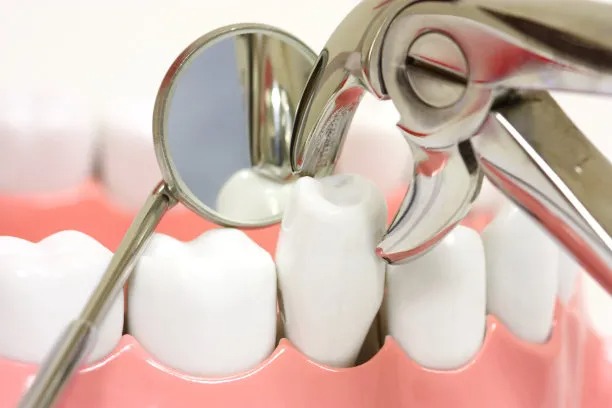Summary: Dental filling procedures are crucial for repairing decayed or damaged teeth, ensuring optimal dental health. This article outlines essential precautions and aftercare tips that can significantly influence the success of these procedures. By focusing on preparation, dietary choices post-procedure, maintaining oral hygiene, and follow-up care, patients can enhance their recovery and ensure lasting benefits from their dental work. Understanding these factors not only aids in a smooth recovery but also promotes long-term dental health and wellbeing.
1. Importance of Pre-Procedure Preparations

Preparation before your dental filling procedure is essential for ensuring a smooth experience. Start by discussing any medications you may be taking with your dentist. Certain medications can affect your bleeding time or how you react to anesthesia, which is crucial information for your healthcare provider.
Moreover, consider your overall health status prior to the appointment. Inform your dentist of any underlying conditions like diabetes or heart diseases, as they may need to take special precautions during the filling procedure. Being transparent about your health helps the dental team craft a personalized treatment plan that suits your needs.
Lastly, it’s advisable to arrange for someone to drive you home afterward, especially if you’re receiving sedation. Such measures will ensure your safety and comfort as you recover from the effects of anesthesia.
2. Dietary Choices Post-Procedure
Your diet after getting a dental filling plays a significant role in your recovery. First, it’s advisable to stick to soft foods for the first 24 hours. Foods like yogurt, mashed potatoes, and soups are gentle on the teeth and gums, minimizing discomfort while allowing for proper healing.
Avoid hot beverages and hard or sticky foods immediately after the procedure, as these can exacerbate sensitivity and increase the risk of damaging the new filling. Instead, opt for lukewarm or cold items, which are less likely to trigger discomfort.
Hydration is equally important. Drinking sufficient water not only aids in the recovery process but also helps flush out any leftover medication from your system. Stay away from carbonated drinks and alcohol for a few days post-procedure to avoid irritation.
3. Maintaining Oral Hygiene After Filling
Post-treatment oral hygiene is pivotal in ensuring the longevity of your dental filling. For the first 24 hours, avoid brushing the area of the filling to give it time to settle. After this initial period, resume your oral hygiene routine, but be gentle around the filled tooth.
Use a soft-bristled toothbrush and fluoride toothpaste, as these are more beneficial for sensitivity. Remember to floss daily, as plaque can build up around the filling and compromise its success if not addressed.
Also, consider incorporating an alcohol-free mouthwash into your routine to avoid irritation. Rinsing with a mild solution can help keep your mouth clean without aggravating the sensitive area of the filling.
4. Importance of Follow-Up Care
Following up with your dentist is crucial for optimal recovery. A follow-up appointment typically occurs about two weeks after the procedure, allowing the dentist to assess the filling and ensure it is properly set. During this visit, any concerns regarding sensitivity or discomfort should be addressed.
Communication with your dentist shouldnt end after the appointment. If you experience prolonged pain, swelling, or any unusual symptoms, contact your dental office immediately. Early intervention can prevent minor issues from escalating into serious complications.
Lastly, scheduling regular dental check-ups every six months can vastly improve your oral health. These visits serve as a preventative measure, ensuring that any new dental issues can be identified and treated promptly before they require further, more invasive interventions.
Summary:
In summary, essential precautions and aftercare tips are vital for the success of your dental filling procedure. Focusing on pre-procedure preparations, making wise dietary choices post-treatment, maintaining proper oral hygiene, and ensuring follow-up care will lead you to a smoother recovery process. Adhering to these guidelines can significantly enhance the durability of your dental fillings and contribute to your overall oral health.
This article is compiled by Vickong Dental and the content is for reference only.
Vickong Dental
Vickong Dental is a large medical group established in Hong Kong in 2008 by professors from well-known medical universities in Guangdong and Hong Kong, as well as medical doctors from key national '985' universities (including Master's supervisors and senior professors). The chain of branches brings together expert dentists with PhDs and Master's degrees from Hong Kong and Mainland China, committed to providing high-quality dental treatment.
"Vickong Dental Practices the University Motto of 'Healing and Serving Society,' with a Stable Operation for Sixteen Years. It Has Been honored with Hong Kong Enterprise Leaders's Choice,' and is a Global Trusted Implant Center for the Nobel Implant System. Recommended by Hong Kong Metro Broadcast and Guangdong Television, it Serves Customers from Over Thirty Countries and Regions, Gaining the Trust and Favor of Citizens from the Guangdong-Hong Kong-Macau Greater Bay Area and Surrounding Cities.

Thousands of customers' unanimous praise
The most recognized and highly recommended dental service by customers in the Guangdong-Hong Kong-Macau Greater Bay Area
We Ensure You Receive Detailed Care and Attention Here
Hong Kong standards, Shenzhen prices, Your Trusted English-speaking dentists

Vickong Dental Medical-Grade Instrument Disinfection Process
Vickong Dental Medical-Grade Instrument Disinfection Process

Vickong Dental Chain: A Warm and Comfortable Environment for Treatment






Appointment Hours

Q&A
Why choose Vickong Dental?
Vickong Dental practices the university motto 「Medicine to Benefit Society」, with each branch bringing together highly qualified dentists with doctoral and master’s degrees from Hong Kong and the Mainland, and has maintained seventeen years of steady operation。Recipient of 「2024 Hong Kong Enterprise Leaders Brand」, 「2025 Hong Kong Enterprise Leaders Brand」, a Nobel Biocare Global Trusted Implant Center, and a brand recommended by Metro Radio Hong Kong and Guangdong TV。
To date, we have served customers from more than thirty countries and regions,earning exceptionally high word-of-mouth recognition and trusted recommendations from residents across the Guangdong-Hong Kong-Macao Greater Bay Area and surrounding cities
We have eight major branches in Zhuhai、Shenzhen,and a consultation and service assurance center in Hong Kong,so you can book a free consultation at any time for any questions,which is very reassuring.
If I do not accept the quotation after the CT scan, will I be charged??
No! As long as the actual treatment has not started, you will not be charged any fees.
Will there be any additional charges during the treatment process?
No, there won’t be any additional charges. Before treatment begins, we will clearly explain the treatment plan and its corresponding fees. Only after the patient agrees and signs the consent form will we proceed with the dental service.
Can I pay in Hong Kong dollars?
Yes. Vickong Dental accepts payment in Hong Kong dollars. The amount will be converted based on the exchange rate of the day, and the applicable rate will be clearly communicated to you in advance.
Can I reschedule my appointment at any time?
Yes. Please contact us via **WeChat** or **WhatsApp** as early as possible, providing your original appointment time and details, along with your preferred new date and time slot for rescheduling.













